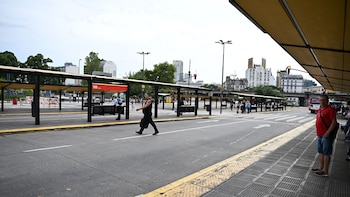
The following op ed was provided to Around the Rings by Beijing Mayor Wang Anshun.
With the approach of the 42nd annual United Nations’ World Environment Day on June 5th, China can be proud of its many years of partnership with UNEP as well as other collaborations, both private and public, as part of the on-going commitment to encourage positive environmental thinking and actions across the world.
Speaking in 2014, Premier Li Keqiang stressed that China had contributed 6 million US dollars to UNEP's trust fund and, furthermore, wishes to enhance communication, cooperation and coordination with UNEP and multilateral environmental agreements in support of global environmental sustainability and action to combat climate change at both national and global levels. The partnership boasts a number of domestic and international programs, including a 7-year-long on-going cooperation between China and UNEP assisting countries in the Global South with the fight against climate change, co-funded by the Government of China and the Global Environment Facility.
As Mayor of Beijing, I can assure that both the Chinese government and our own city authorities fully understand and pay the highest level of attention to improving air and water quality and ensuring a healthier and more sustainable environment. The 21.5 million residents of Beijing and the hundreds of millions of people who travel to the Chinese capital every year to enjoy Beijing’s millennial history, dynamic culture and entertainment, outstanding cuisine, and so much more are already witnessing our urban environmental improvements.
These improvements are real and are the results of a wide range of concrete measures to develop a green, circular and low-carbon economy. As part of China’s 12th Five-Year Plan for National Economic and Social Development (2011-2015), US$ 468 billion have been invested in creating a green, low-carbon economy with special attention to key economic sectors. In November 2012, eco-civilization was elevated for the first time to the center of China’s national development strategy, marking a new milestone of sustainable development in the country. On 12 September 2013, China’s State Council released its Action Plan for Air Pollution Prevention and Control, listing key measures to be implemented within ten aspects. A new environmental protection law came into effect on January 1, 2015, which "sets environmental protection as the country’s basic policy." For the first time in history, it clearly stated that "environmental protection considerations must be incorporated with socioeconomic development plans", representing the development strategy and thinking under "new normal", which will be conducive to environmental protection in the long run.
Speaking about Beijing, the entire economy of the city has been transitioning towards a more balanced and sustainable structure of industries. Coal burning reduction, car and oil usage reduction, pollution control and emission reduction, and dust cleaning are the four key areas of focus of the 2013-2017 Clear Air Action Plan and Beijing Air Protection and Management regulations. With a total investment of nearly US$ 130 billion in the next five years, we have been strongly advocating for a diversified energy structure, use of natural gas as well as new and clean energies such as solar energy and heat pump systems, in addition to progressively introducing green public transport. By 2017, coal consumption in Beijing will decrease to less than 10 million tons from 23 million tons in 2012. In addition, the implementation of the Integrated Development Plan for Beijing, Tianjin and Hebei Province was approved by the Central Government with a focus on transport integration and geographical redistribution of industrial companies with a parallel upgrade of the material and technologies of the existing industries in accordance with international environmental standards. Boosted in part by the development of the Beijing-Zhangjiakou Sport, Culture and Tourism Belt, sustainable industries such as tourism and leisure, sports, culture, conference and exhibition have been rapidly increasing and are estimated to reach about 20% of the local GDP in added value by 2022.
Our measures have made a real impact. Consider the following: since 2013, Beijing has built 3 natural gas fired power plants and shut down three coal fired power plants, and 10, 000 T/h coal-fired boilers have been transformed, with the coal consumption falling by 9 million tons. 680 polluting companies have been closed. In 2013 and 2014, 842,000 old vehicles with high exhaust emissions were taken off the roads. A decrease of 10.2% was witnessed in the average level of PM 2.5 in our city’s air in 2014 compared to 2012 and a further 19% decrease during the first five months of 2015.
All of these statistics give us confidence that, while there is still a lot to do, we are moving in the right direction. With all the measures in place and improvement of public awareness on environmental protection, experts expect the Beijing air to meet international norms by 2020.
In the past ten years Beijing has successfully hosted over 40 major international sports events, including the Beijing 2008 Olympic Summer Games, IIHF Women Ice Hockey World Championships, ISU Figure Skating Grand Prix, and the 2015 IAAF World Championships (to be held this August at the Bird’s Nest), as well as dozens of national and regional competitions. We also hosted a range of high-level business and political meetings, large-scale concerts and other high-profile cultural events. Today, Beijing seeks the right to host the 2022 Olympic Winter Games in support of the soaring development of winter sports in China and in full accordance with the Olympic Agenda 2020’s sustainability goals.
It would be incorrect to presume that these events have been the main reasons behind our city’s environmental reforms, as cleaning Beijing’s air and living environment is an unconditional requirement for our everyday lives and the on-going development of our city. And while hosting major events is a major contribution to enhancing the regional economy and ultimately putting it on a more sustainable path – therefore being one of the city’s priorities, - these events are also, and primarily, direct beneficiaries of the positive changes that have been happening in the city.
Reforming the structure of the world’s largest developing country and second largest economy cannot be accomplished in a single day. However, Beijing and China have both the ability and the passion to not only improve the situation, but to do so remarkably quickly.
We are confident that we can provide fresh air for Beijing, not only by significantly improving the quality of air, but also through paving a new, healthier and greener path for our city’s and region’s development for years to come.
Written byWang Anshun, Mayor of Beijing and President of the Beijing 2022 Bid Committee
20 Years at #1: Your best source of news about the Olympics is AroundTheRings.com, for subscribers only.
Últimas Noticias
Utah’s Olympic venues an integral part of the equation as Salt Lake City seeks a Winter Games encore
Utah Olympic Legacy Foundation chief of sport development Luke Bodensteiner says there is a “real urgency to make this happen in 2030”. He discusses the mission of the non-profit organization, the legacy from the 2002 Winter Games and future ambitions.

IOC president tells Olympic Movement “we will again have safe and secure Olympic Games” in Beijing
Thomas Bach, in an open letter on Friday, also thanked stakeholders for their “unprecedented” efforts to make Tokyo 2020 a success despite the pandemic.

Boxing’s place in the Olympics remains in peril as IOC still unhappy with the state of AIBA’s reform efforts
The IOC says issues concerning governance, finance, and refereeing and judging must be sorted out to its satisfaction. AIBA says it’s confident that will happen and the federation will be reinstated.

IOC president details Olympic community efforts to get Afghans out of danger after Taliban return to power
Thomas Bach says the Afghanistan NOC remains under IOC recognition, noting that the current leadership was democratically elected in 2019. But he says the IOC will be monitoring what happens in the future. The story had been revealed on August 31 in an article by Miguel Hernandez in Around the Rings

North Korea suspended by IOC for failing to participate in Tokyo though its athletes could still take part in Beijing 2022
Playbooks for Beijing 2022 will ”most likely” be released in October, according to IOC President Thomas Bach.




